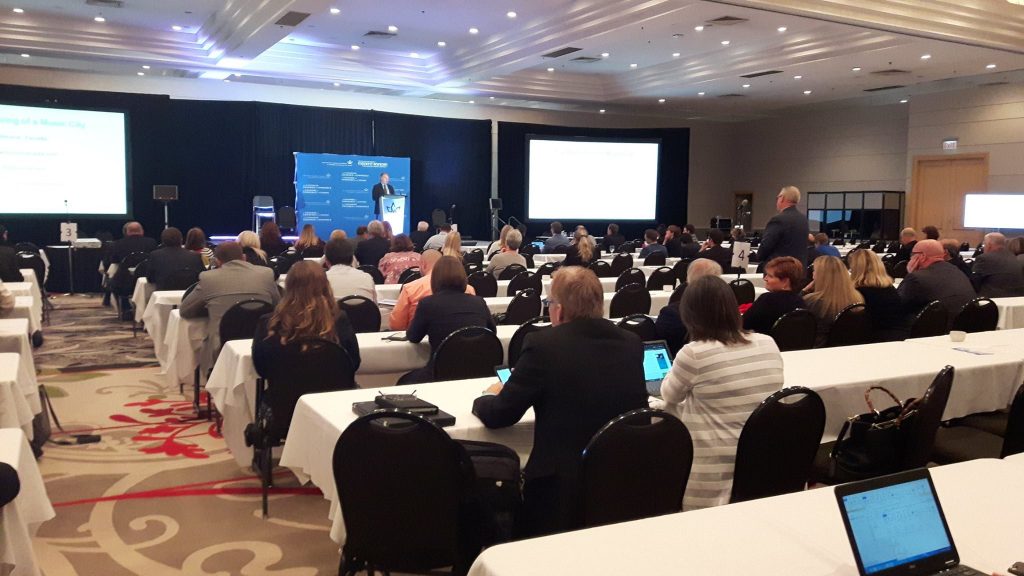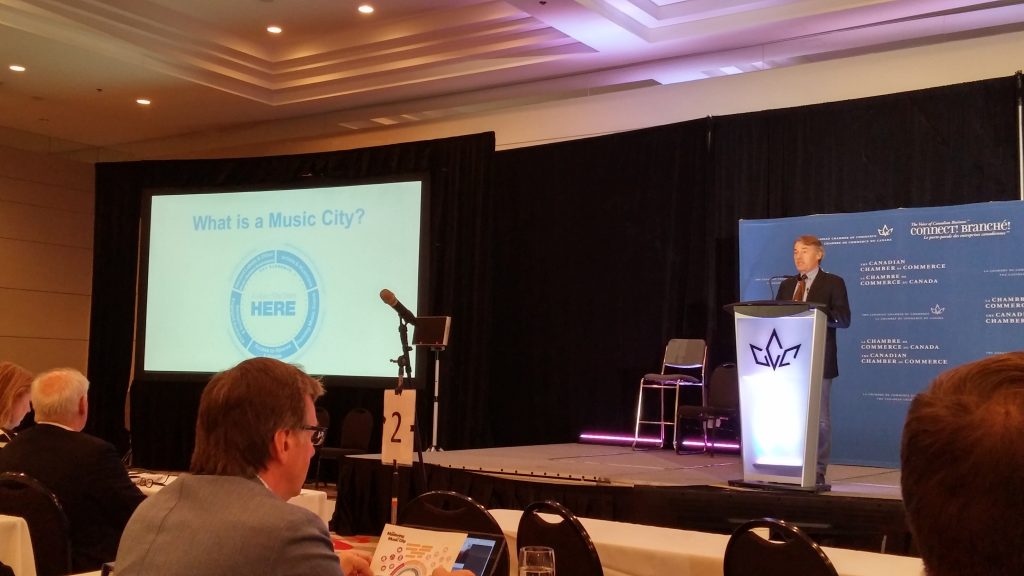Music is increasingly being seen as an important means of economic development with Music Canada’s Mastering of a Music City as the primary resource in this effort.
A vibrant nightlife, of which music is so much a part, is critical for attracting and retaining talent. Cities like Austin and Nashville regularly lure investment, new business growth and talented workers, through a deliberate program to sell their cities as great music cities.
But a vibrant music scene doesn’t magically happen. Attention must be paid to the many bylaws and regulations that impact music. The music ecosystem, with artists and musicians at the heart, needs to be nurtured, supported and promoted with a focus on commercial music as well as not-for-profit enterprises. Infrastructure, in the form of individuals or bodies who facilitate regular communication between the city and the music community, are necessary. Sometimes there is also an important role for investment in hard infrastructure like transportation networks and performance facilities.
The Mastering of a Music City, designed to be a road map for communities that want to engage with their music community and build a vibrant music economy, is being utilized across Canada, the US and internationally. Music Canada has added to this work with a tool kit designed specifically for chambers of commerce, important agents in community economic development work.
Perrin Beatty, President and CEO of the Canadian Chamber of Commerce has called the Music Cities model a “tried and tested economic development tool.”
Last week a symposium hosted by WindsorEssex Economic Development Corporation featured a presentation on Music Canada’s report by Amy Terrill. CEO Steve MacKenzie remarked:
“Developing Music Cities has proven itself as a winner in Economic Development. We have tangible research, thanks to Music Canada’s work in the field, showing economic growth in correlation with fostering a healthy music ecosystem. Just as important is the cultural spin-off that comes with the support of these initiatives. Quality of life is a major deciding factor for a dynamic workforce that greatly values a work/life balance. The music sector is a wonderful example where an industry’s by-products are of equal value to its core functions. Music is universal, and in Windsor-Essex, one of Canada’s most ethnically diverse regions, it’s a language that we all speak. It provides an impact we can all benefit from.”
And the word is certainly spreading.
Music Cities will be the topic of a panel discussion and presentation at the International Economic Development Council (IEDC) annual conference on September 27, 2016. IEDC is a membership organization serving economic developers with more than 4,500 members.
The session, Mastering a Music City for Economic Development, will feature the following:
- Kate Becker, Director, Office of Film + Music, Seattle, WA
- Jonathan Knecht, VP, Marketing + Creative Director, Kansas City Area Development Council, Kansas City, MO
- Amy Lopp, Business Development Specialist, Athens-Clarke County Economic Development, Athens, GA
- Don Pitts, Manager, Music & Entertainment Division, Economic Development Department, City of Austin. Austin, TX
- Amy Terrill, Executive Vice President, Music Canada, Toronto, Ontario, CA
And next month, Amy Terrill will participate in a discussion on music and cities, at the 5th UCLG Congress World Summit of Local and Regional Leaders in Bogota, Columbia.
Ultimately, Music Canada and our members are leading this initiative in order to improve the odds for those wanting to develop careers in the music industry – in order to create a stronger music community. Music interacts with cities in ways that benefit those cities. Contributing to a broader understanding of that value will, in turn, bring about greater opportunities for all of us to make music.




Music Canada